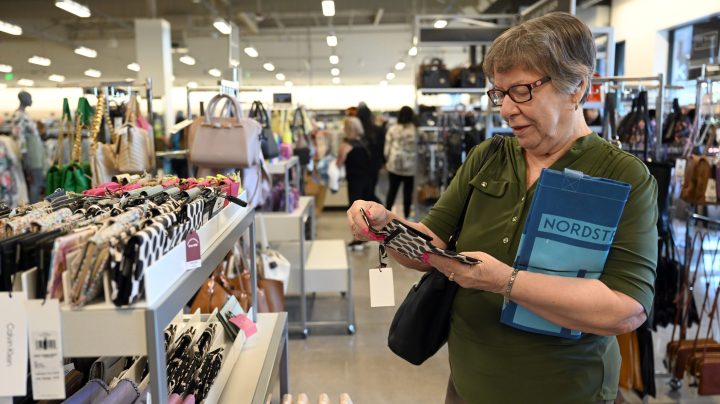
Consumer confidence is rebounding. Here’s why.

Consumers have been a stalwart of this somewhat tumultuous economy of late.
They’ve kept up robust spending — in spite of inflation spiking last year, the Federal Reserve’s sharp interest rate hikes and then unexpected bank failures. Until recently, consumer confidence had been downright lousy — well below levels seen before the pandemic.
But that’s now turning around. The University of Michigan’s consumer sentiment index rose 13% in July over June and is up more than 40% since one year ago. Plus, The Conference Board on Tuesday reported a sharp jump in its consumer confidence measure to a two-year high.
I’m a business reporter, sure. But I’m also a consumer, and when I was filling up my gas tank last weekend in Massachusetts on a long drive to my niece’s wedding, I was definitely thinking like a consumer.
I paid around $3.60 a gallon. This time last year, it was $4.50 a gallon. Which means I just paid 20% less.
“Prices — when we look at gasoline — they are falling year on year. Also prices for food are not rising as aggressively,” said Dana Peterson, chief economist at The Conference Board. “So, the fact that the basics — food and energy — are not as high as they were, or at least are not rising as much as they had been, is a real relief for consumers.”
This combination of deflation, with some prices actually falling, and disinflation, in which price increases are moderating, is driving consumer confidence up. Consumers are also just less worried, Peterson said.
“You know, despite warnings that ‘a recession’s coming, a recession’s coming,’ they’re still working, and many people have seen their wages increase,” she said. “So that means your real income — what’s in your pocket — is worth more now than it was before.”
Some warning lights are still flashing, noted John Leer at public opinion firm Morning Consult.
“The shock absorbers that consumers have have been worn down,” he said. “We see financial vulnerability — so, the share of American adults who lack savings to pay their basic expenses for a month has been increasing.”
Consumers have also been racking up more credit card debt. But it’s the labor market that’s more likely to drive spending decisions, according to Quincy Krosby at LPL Financial.
“Americans are very much focused on their neighbors: Do they have jobs? Will I have a job?” she said.
“We know from history that as long as folks are working, they feel more comfortable about spending.”
Krosby added that companies are seeing it in their earnings. They’re raising prices, and the sales keep rolling in.
There’s a lot happening in the world. Through it all, Marketplace is here for you.
You rely on Marketplace to break down the world’s events and tell you how it affects you in a fact-based, approachable way. We rely on your financial support to keep making that possible.
Your donation today powers the independent journalism that you rely on. For just $5/month, you can help sustain Marketplace so we can keep reporting on the things that matter to you.











